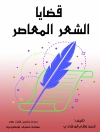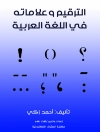Examines some of the varied African literary responses to politics and social justice and injustice under colonialism/neocolonialism.
In 1965, Chinua Achebe, in his classic essay ‘The Novelist as Teacher’, declared that the ‘African past – with all its imperfections – was not one long night of savagery from which the early Europeans acting on God’s behalf, delivered them.’ That assertion included a still reverberating sentiment shared by many of the first generation of African writers that it is possible to reclaim that distorted past creatively in order to show and understand ‘where andwhen the rain started beating Africa’.
Many genres and forms of literary and cultural production have recalled and recorded and reconfigured that past – many projecting a new confident African future defined by self-determination. The spectrum of that complex engagement, which encompasses critical issues in politics and social justice, provides the basis of this volume, which concludes with tributes to the life and works of Kofi Awoonor.
Articles on:
Binyavanga Wainaina + Ben Okri & Nationhood + J.M. Coetzee & the Philosophy of Justice + Isidore Okpewho & ‘Manhood’ + Ngugi’s
Matigari & the Postcolonial Nation + Politics & Women in Irene Salami’s
More Than Dancing + Ayi Kwei Armah’s
The Resolutionaries
Ernest Emenyonu is Professor of Africana Studies at the University of Michigan-Flint, USA; the editorial board is composed of scholars from US, UK and African universities
Nigeria: HEBN
Tabella dei contenuti
Editorial article: Fiction and Socio-Political Realities in Africa: What Else Can Literature Do? – Ernest N. Emenyonu
The Novel as an Oral Narrative Performance: The Delegitimization of the Postcolonial Nation in Ngugi wa Thiong’o’s
Matigari Ma Njiruungi – Nicholas Kamau-Goro
The Novel as an Oral Narrative Performance: The Delegitimization of the Postcolonial Nation in Ngugi wa Thiong’o’s
Matigari Ma Njiruungi – Emilia V. Ilieva
Abiku in Ben Okri’s Imagination of Nationhood: A Metaphorical Interpretation of Colonial-Postcolonial Politics – Ikenna Kamalu
Refracting the Political: Binyavanga Wainaina’s
One Day I Will Write About This Place – Rachel A. Knighton
Ayi Kwei Armah’s
The Resolutionaries: Exoteric Fiction, the Common People & Social Change in Post-Colonial Africa – A Critical Review – Edward Sackey
In Quest of Social Justice: Politics & Women’s Participation in Irene Isoken Salami’s
More Than Dancing – H. Oby Okolocha
Breaking the Laws in J. M. Coetzee’s
The Childhood of Jesus: Philosophy & the Notion of Justice – Laura Wright
The Rhetoric & Caricature of Social Justice in Post-1960 Africa: A Logical Positivist Reading of Ngugi wa Thiong’o’s
Matigari – Eric Nsuh Zuhmboshi
‘Manhood’ in Isidore Okpewho’s
The Last Duty: Authority or Accountability? – Deborah L. Klein
REMEMBERING KOFI AWOONOR (13 March 1935 – 21 September 2013) I: Kofi Awoonor: In Retrospect – Kofi Anyidoho
II: Kofi Awoonor: Poem for a Mentor & Friend – Ghirmai Negash
III: Looking Death in the Eye: The Human Condition, Morbidity & Mortality in Kofi Awoonor’s Poetry – Mawuli Adjei
IV: Eulogy for an Artist, a Statesman, a Teacher & Friend: Kofi Awoonor – Richard Priebe
V: Postcolonial Trauma & the Poetics of Remembering the Novels of Kofi Awoonor – Prince K. Adika
VI: Song for Nyidevu – Kofi Anyidoho
Reviews – James Gibbs
Circa l’autore
Laura Wright is a Reader in English Language at the University of Cambridge, where she works on the history of English.












